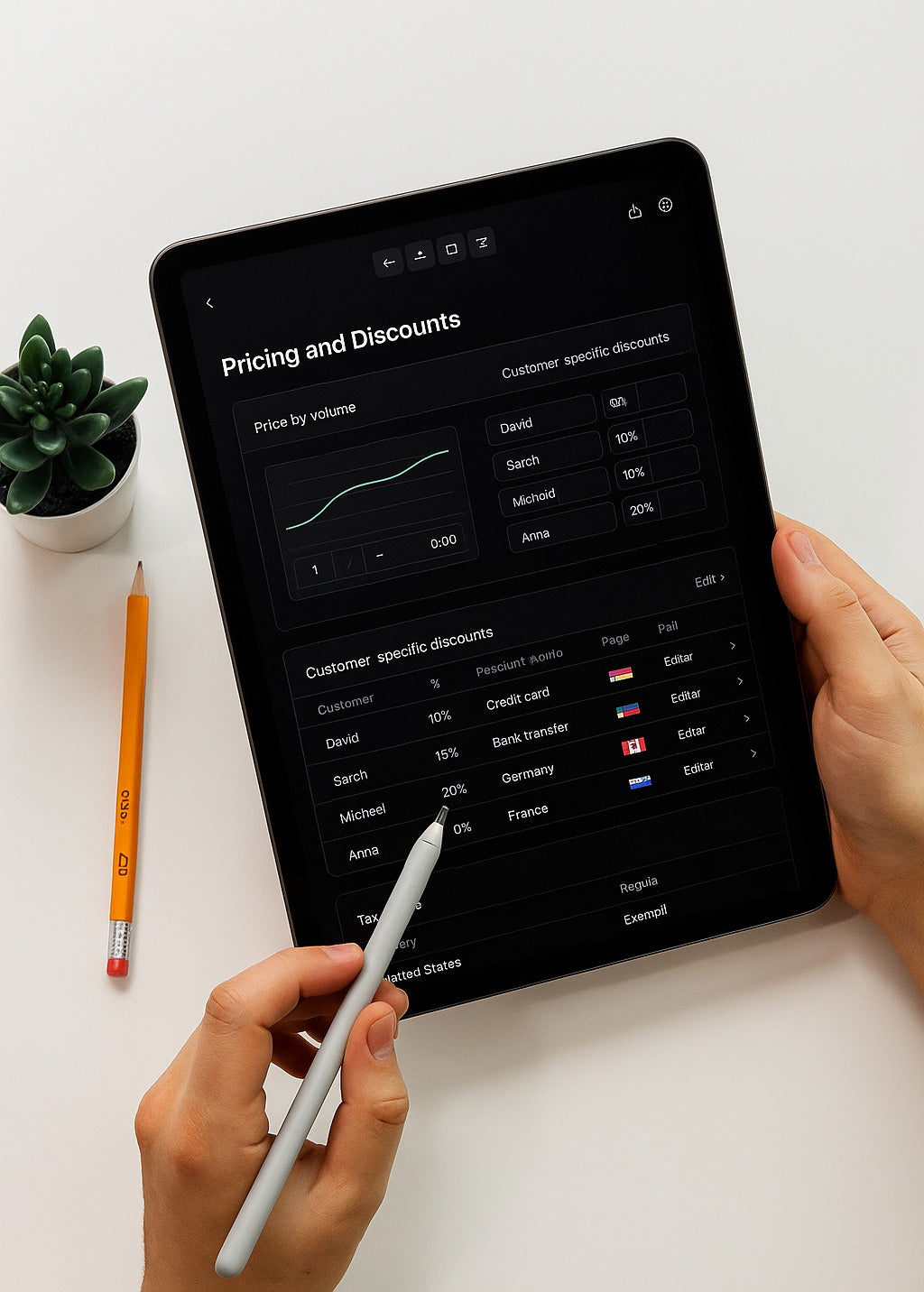Sale to professionals
Shopify Plus lets you manage different customer profiles within a single store: distributors, wholesalers, companies with multiple locations, national or international.
Shopify Plus lets you manage different customer profiles within a single store: distributors, wholesalers, companies with multiple locations, national or international.
Each client can have their own catalog, terms and conditions, and permissions, facilitating professional online sales with real flexibility: sell in B2B, B2C, and B2B2C.
Wholesalers
They operate with high volumes, scaled pricing, and recurring orders. They require platforms that manage customer-specific trading conditions and process automation.
Distributors
They manage multiple brands and channels, with complex logistics and traceability needs. E-commerce must integrate with internal systems and offer customized portals.
Professionals
They purchase based on technical needs, compatibility, or regulations. The platform should facilitate advanced search, access to documentation, and autonomous order management.
End customer
Look for a seamless shopping experience, clear information, and immediate availability. The digital channel must be optimized for conversion, loyalty, and after-sales service.

Set volume pricing, customer discounts, minimum order rules, and specific terms and conditions. Shopify Plus lets you tailor your B2B ecommerce to each customer's business needs without the need for complex development.
Define custom payment terms, manage credit limits, and control risk per customer. Shopify B2B lets you automate these processes and maintain control over each customer.
Shopify allows you to apply tax rules by country, customer, or product. You can manage intra-community VAT, exemptions, and invoicing tailored to each market. As Shopify Plus consultants, we can help you with this process.
